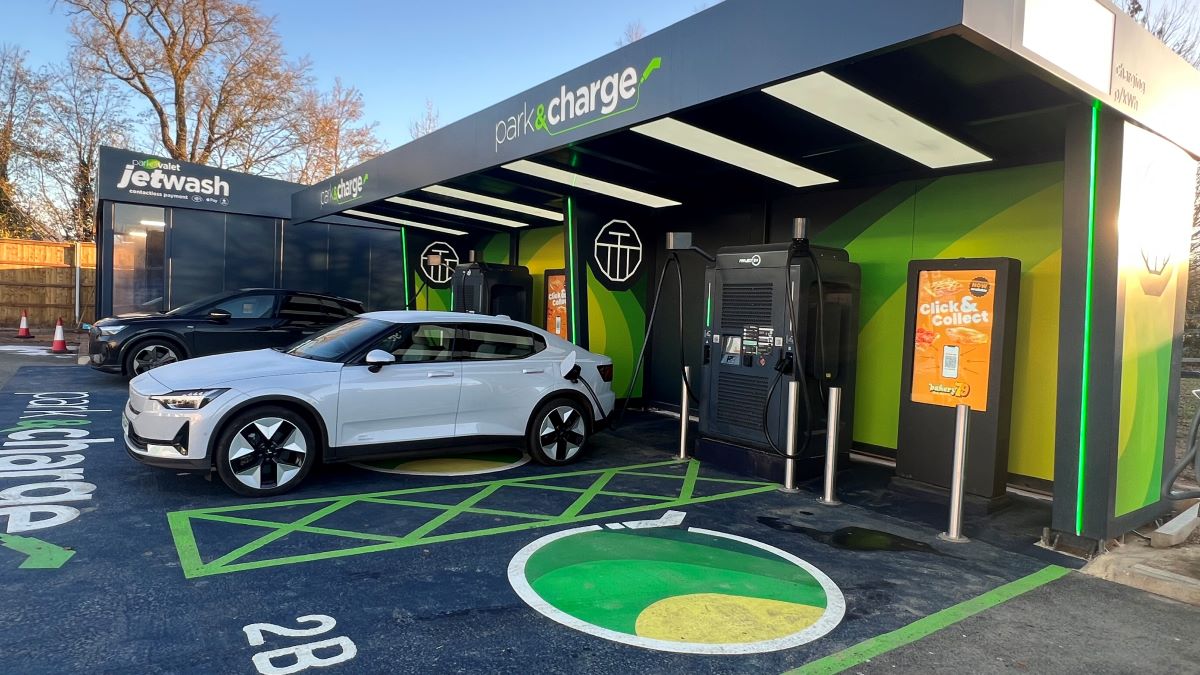
As we become increasingly conscious of our environmental impact, it’s perhaps not surprising to see the appeal of vehicles powered by alternative fuels growing in popularity, with mainstream manufacturers making major investments into new technologies in a bid to meet the demand as well as satisfy green targets asked of them by government.Electric and Hydrogen have emerged as the clear front runners in this area, but several questions remain regards the long-term viability of both options.
Despite this, UK forecourt owners are still being encouraged to adopt new re-fuelling methods on their sites as the number of vehicles powered by alternative means continues to grow.As such, it can be difficult to know at this stage which horse you should back, so we’ve taken a look at both sides to try and assess the battle to become the future of fuel.
How do they work?
As the name might suggest, electric cars are powered by electricity, stored in a rechargeable battery and used to power an electric motor to propel the car. Simple.Hydrogen vehicles are essentially propelled in the same away, but the main difference is the source of the electricity used to power the motor. With hydrogen-powered vehicles there is no rechargeable battery, but instead a hydrogen fuel cell which stores highly pressured hydrogen gas. This is then mixed with oxygen to create a chemical reaction that produces electricity to power the motor.
Which alternative fuel is in the lead right now?
Of the two options, Electric vehicles are currently the most popular. To date it’s estimated that there are approximately 234,000 electric vehicles in use across the UK alone compared to only an estimated 11,000 hydrogen powered vehicles in use worldwide. There’s also a wider variety of options for those in the market for an electric vehicle, with around 50 different electric car options currently available on the market today compared to just 3 hydrogen powered equivalents.This is in part influenced by the rate of research and development, but perhaps more so by the state of charging infrastructure. In the UK, road users can access over 20,000 public charging points, a stark contrast to Hydrogen with just 17 refuelling stations available nationwide.
Which option is more sustainable?
On the face of it, the environmental appeal of both options is significant. Electric vehicles produce zero emissions, while the only by-product distributed by hydrogen-powered cars and vans is fresh water. One major criticism of electric vehicles, however, is that the process to produce electricity needed to re-charge is often as a result of burning fossil fuels, something which is most definitely not sustainable for the long-term. You might think that this should give Hydrogen cars an environmental advantage, but unfortunately that simply isn’t true. Although Hydrogen is the most commonly found element in the known universe, the process to obtain pure hydrogen gas, the fuel source for these vehicles, is not only inefficient but also damaging to the environment.However, with an increasing amount of the world’s electricity being provided by environmentally-friendly sources, such as solar panels and wind farms, it appears that electric vehicles are currently the more sustainable long-term option from a purely environmental standpoint.
Which option delivers the best range?
This is one area at present where Hydrogen powered cars appear to be a clear winner. Although some electric cars are advertised with ranges up to around 300 miles or more, in reality many of these will only actually deliver figures of 200 miles or less. Electric vehicles can also take a long time to charge, with even fast charge cycles taking up to 30 minutes with limitations around how regularly these can be performed. The charging time is a boost for retailers, though, who can benefit from the extra time drivers spend on their sites while charging.Hydrogen cars, however, are more in line with their petrol and diesel-powered counterparts. Manufacturers estimate hydrogen vehicles to deliver a real-world range of over 400 miles, with the refuelling process taking around 5 minutes at most.The verdict?With the information available to us currently, the only conclusion we can draw is that it is still too soon to say for certain which of these two alternative fuels will become to standard in years to come.
There’s no doubt that electric vehicles are currently pushing ahead, with experts stating that the level of innovation in this area is ‘years ahead’ of other options, but Hydrogen remains an area of great interest for the world’s major motoring manufacturers with significant research still ongoing to push for further developments in this area.What is clear, is that the modern forecourt needs to be ready to react as the motoring market develops, and harnessing the latest technologies in all areas of your site will help provide the agility to respond to new innovations and consumer trends as they occur.


.png)







